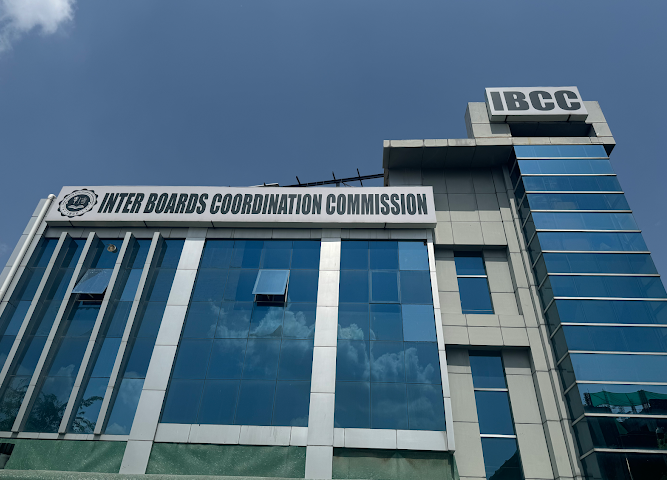Students eyeing international universities could soon benefit from a groundbreaking shift in Pakistan’s education system, as efforts to secure global recognition for the Intermediate Certificate gain momentum.
In a move that could open doors for thousands of students pursuing higher education abroad, Pakistan’s Inter Board Coordination Commission (IBCC) is working to ensure the country’s Intermediate Certificate is directly accepted by universities overseas — including institutions in the UK.
The commission is currently collaborating with ECCTIS, the UK agency responsible for recognizing international qualifications, to streamline admissions for Pakistani students. Similar engagements are underway with other countries to bolster international credibility for the qualification.
A Strategic Push for International Standards
According to Dr. Ghulam Ali Mallah, Executive Director of IBCC, the initiative isn’t just about easing admissions — it’s also a strategic effort to align Pakistan’s academic credentials with global benchmarks while preserving their integrity.
As part of these reforms, the outdated requirement for sealed verification envelopes has been scrapped. Instead, all 29 educational and technical boards in Pakistan now operate through online systems, allowing for faster and more secure verification of credentials.
Digitization Transforms Verification and Attestation
IBCC’s digital overhaul is changing the way students and institutions interact with the verification process. An online application platform now enables QR code-based authentication for certificates, giving foreign universities the ability to instantly verify documents.
The commission is also expanding online verification to include religious seminary (Madrassa) credentials, in a bid to bring all educational pathways under the same transparent system.
Since 2023, IBCC has been operating under a new legal identity — shifting from a committee to a formal commission through legislation passed by Parliament. This legal backing has empowered it to regulate foreign qualifications within Pakistan, using a framework that evaluates foreign education systems against 15 defined standards.
New Tools for Students and Institutions
Under Dr. Mallah’s leadership, IBCC has launched several tools to simplify processes for both students and institutions. A dedicated portal allows foreign educational boards to register for recognition, while a centralized database is in development to enhance record-keeping and access.
Automation has extended to universities as well, with IBCC deploying verification portals that offer real-time SMS and email updates for each application. Public-facing improvements include a 24/7 social media helpdesk, helpline services, and customer support desks to handle complaints and queries more efficiently.
Legal Backbone Strengthens Authority and Delivery
One of Dr. Mallah’s core achievements has been securing a legislative framework to formalize IBCC’s role. The IBCC Act, developed in collaboration with education boards, legal experts, and provincial authorities, now underpins the body’s work in attestation, equivalence, and inter-board coordination.
Internally, administrative reforms have introduced performance monitoring systems and enhanced departmental communication, leading to faster service delivery and improved public trust.
Academic Overhaul Targets Quality and Fairness
Beyond procedural reforms, the IBCC is rethinking how students are assessed. New conceptual and applied learning models have been introduced to move away from rote memorization. A national assessment framework is also in place to unify standards across different boards.
In a move to reduce academic stress, the term “supplementary exam” has been retired. It’s now referred to as a “second annual examination,” giving students two chances a year to improve their scores. The commission is also working on initiatives like re-evaluation options, standardized academic calendars, and teacher training to further professionalize the system.
Path to Global Recognition: What It Means
The push to internationally recognize Pakistan’s Intermediate Certificate marks a pivotal moment for the country’s education system. For students, it could mean fewer hurdles when applying to universities abroad. For institutions, it represents a broader alignment with international norms — a step toward making Pakistani qualifications globally competitive.


